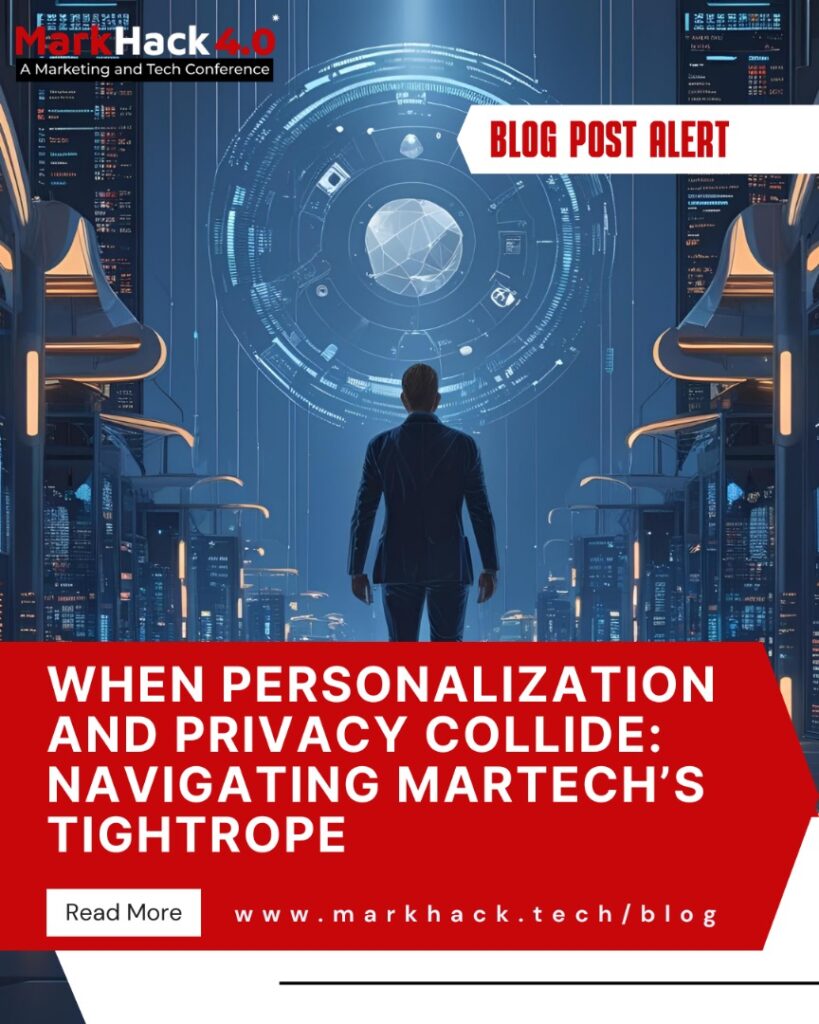
We all love that feeling when a brand just gets us; when product recommendations feel tailored,emails anticipate our needs, or a website shifts seamlessly as we click. That’s the power of personalization. But behind every hyper-relevant experience lies a tricky balancing act:respecting privacy.
The Personalization Paradox
Personalization has evolved from simple customization to radical relevance. Modern Martech platforms, powered by AI and predictive analytics, tailor experiences in real time based onbehavior, identity, and even context. Suddenly, you’re not just hearing a message; you’rehearing the right message, at the right time, on the right channel.
But personalization comes at a cost. As third-party cookies disappear and privacy laws tighten,marketers are realizing that data access is no longer a free-for-all. Trust is getting as muchattention as targeting.
First-Party and Zero-Party Data Are the New Gold
In this era of privacy-first marketing, the most valuable data is the kind consumers sharedirectly—through behavioral signals or explicit preference inputs. First-party data (from yourwebsite, app, transactions) and zero-party data (info provided willingly by users) are now thecornerstones of ethical personalization.
The result? Brands that focus on transparent exchanges, like surveys or opt-in engagements,find two major wins: better data and stronger customer trust.
How to Personalize Without Crossing the Line
Delivering relevant experiences while respecting privacy isn’t optional; it’s expected. Here are afew principles to guide the journey:
● · Be transparent about data use, explaining why you need it and whatbenefits users get in return.
● · Offer meaningful value for consent—discounts, loyalty perks, or contenttailored to user preferences.
● · Use contextual targeting instead of invasive tracking—delivering ads basedon page content rather than user identity
.● · Leverage AI for anonymized or predictive insights, letting you deliverpersonalization without exposing personal identifiers.
This isn’t just compliance, it’s credibility. When consumers feel respected and empowered, they’re more likely to engage and convert.
The Real Advantage: Trust-Driven Personalization
Here’s the catch: consumers won’t trade privacy for personalization unless it feels fair. Recentinsights show that people are more likely to share data when they understand its use and gettangible value in return. Personalization that ignores transparency often feels creepy;personalization built on trust feels smart.
Real-World Alignment: What MarkHack 4.0 Is Teaching Startups
Brands that get this balance right are the ones winning, not just in ad performance, but inlong-term relationships. That’s why the MarkHack 4.0 Startup Incubation Program makes itpart of its curriculum for early-stage teams to design products and campaigns with privacy-firstpersonalization in mind.
Rather than building for scale alone, startups are guided to think about why they collect data, how they use it, and what transparency practices they need to embed. This mindset shiftensures that personalization isn’t just effective, but ethical, from day one.
Final Thoughts
Martech in 2025 isn’t just about smarter tools; it’s about smarter ethics. The real winners are thebrands that personalize with purpose and privilege trust above convenience. Because in today’smarket, privacy isn’t a blocker—it’s a builder.
